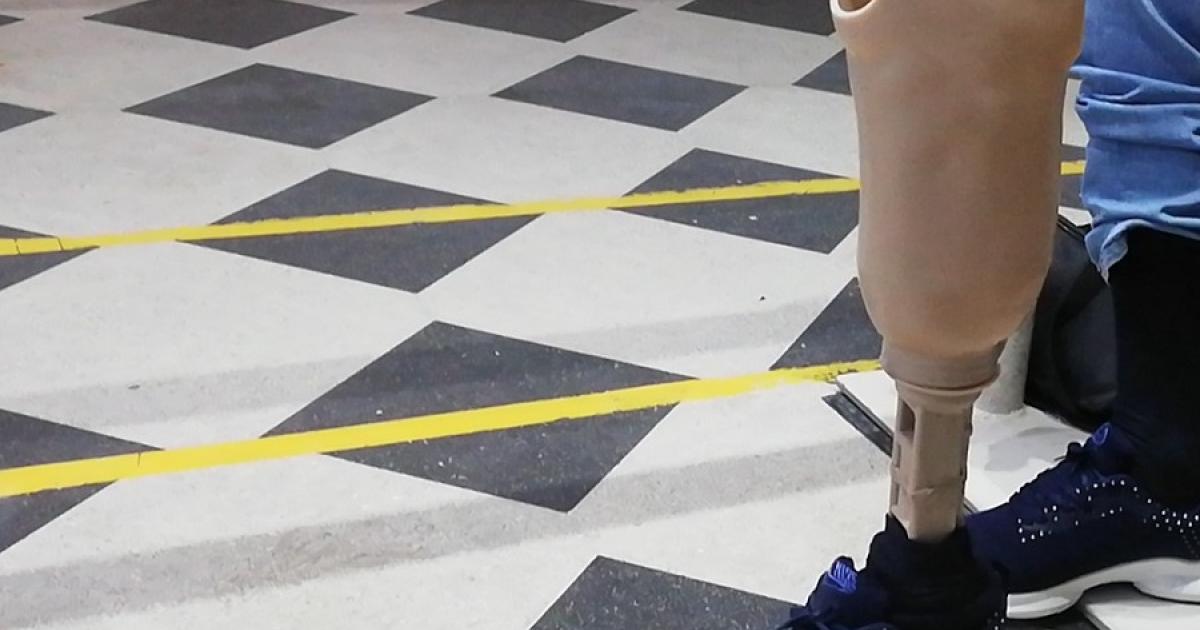A deadly legacy: Syrians and the increasing threat from discarded landmines
Syria ranks first in terms of the number of landmine victims, according to the latest statistics

Your support helps us to tell the story
From reproductive rights to climate change to Big Tech, The Independent is on the ground when the story is developing. Whether it's investigating the financials of Elon Musk's pro-Trump PAC or producing our latest documentary, 'The A Word', which shines a light on the American women fighting for reproductive rights, we know how important it is to parse out the facts from the messaging.
At such a critical moment in US history, we need reporters on the ground. Your donation allows us to keep sending journalists to speak to both sides of the story.
The Independent is trusted by Americans across the entire political spectrum. And unlike many other quality news outlets, we choose not to lock Americans out of our reporting and analysis with paywalls. We believe quality journalism should be available to everyone, paid for by those who can afford it.
Your support makes all the difference.This article first appeared in our partner site, Independent Arabia
Nine-year-old Misbah shies away from playing football with his peers in the small open area in the middle of his working-class neighbourhood, located on the outskirts of Damascus.
The child, whose family was displaced from their home in the suburbs of Homs years ago, can only look on wistfully as his neighbourhood friends play, casting sad glances to the prosthetic leg that replaced his limb following an injury caused by a landmine planted in his father’s field.
As the Syrian war rages on, the number of children, women and civilians in general who, like Misbah, have lost their limbs, grows increasingly higher.
He has settled into the routine of check-ups at the prosthetic centre he visits every six months and is accustomed to the looks of pity he receives, but he refuses to give in, saying assertively: “I wanted to become a football player when I grew up, but now I only dream of studying. I want to become a doctor”.
Having lived through the hell of war and the horrors of missiles and rocket fire, with internationally prohibited weapons such as cluster and chemical rockets being fired, the country now lies on a bed of buried embers.
Despite the state of uneasy calm, innocent people are still exposed to “traps” that endanger their lives.
According to a report published by the Landmine Monitor a few days ago, Syria had the highest concentration of victims of landmines in the past year.
The organisation’s annual report documented 2,729 deaths and injuries caused by landmines in the country. These are the highest figures recorded by the Monitor since its establishment in 1999.
Syria has surpassed both Afghanistan and Columbia, previously the highest-ranking countries on the list. For the sixth year in a row, 2020 witnessed a rise in the number of improvised landmines or unexploded ordinances, the legacy of wars.
There is increasing concern over the loss of more innocent lives in former conflict zones or those regions that are still in the grip of war, in the northeast and northwest of Syria.
The re-emergence of ISIS in the Syrian desert at the beginning of this year also poses a threat, after the group planted anti-personnel and roadside anti-vehicle mines.
On 6 November, seven people, one of them a child, lost their lives in a landmine explosion in the outskirts of Homs.
The Syrian Observatory for Human Rights noted that the vehicle transporting them was heading towards the desert, namely to the historical city of Palmyra, when a landmine exploded on a road in an area called Duwaa, resulting in the complete destruction of the vehicle and the subsequent death of all of its passengers.
The official spokesperson for the Red Cross in Syria, Adnan Khuzam, highlights the ongoing dangers in former conflict zones.
Speaking to Independent Arabia, he said that the danger increases during harvest season when truffles are picked in the Syrian Desert.
“Landmines continue to endanger the lives of millions of Syrians. That is why, in collaboration with the Red Crescent, the ICRC is spreading awareness in rural areas on how to avoid this threat. Our volunteers conduct awareness sessions in former conflict zones in order to educate people on how to avoid harm,” he adds.
Humanitarian workers try to raise the awareness of locals and make them cautious of strange objects that may be disguised mines. Emergency doctor Ghaith Haj Hamdoun, who was formerly based in a hospital in the suburbs of Damascus before he moved to Germany, recounts the days of war he lived through.
“Children lost limbs from the explosion of mines that they had picked up because they were disguised as toys. Many lives were lost after expensive objects were rigged or mines were planted in houses before retreating from them,” he said.
The doctor believes that the danger today is the increase in landmines with no system in place to map their locations. This is what makes it even more difficult to find them, he says.
“The war is not easy now. While gunshots and artillery fire have decreased on the ground, Syrians are now facing an underground threat. More effort must be made to remove landmines, and the utmost caution must be taken while dealing with them.”
The Landmine Monitor revealed in its report that it neither documented nor confirmed the use of anti-personnel landmines by the Syrian forces or by Russian forces engaged in military operations.
While Syria is not a signatory of the Mine Ban Treaty, now is the time to ensure social and psychological support for all of the injured and the amputees, especially those who are children.
Reviewed by Tooba Ali and Celine Assaf



Join our commenting forum
Join thought-provoking conversations, follow other Independent readers and see their replies
Comments